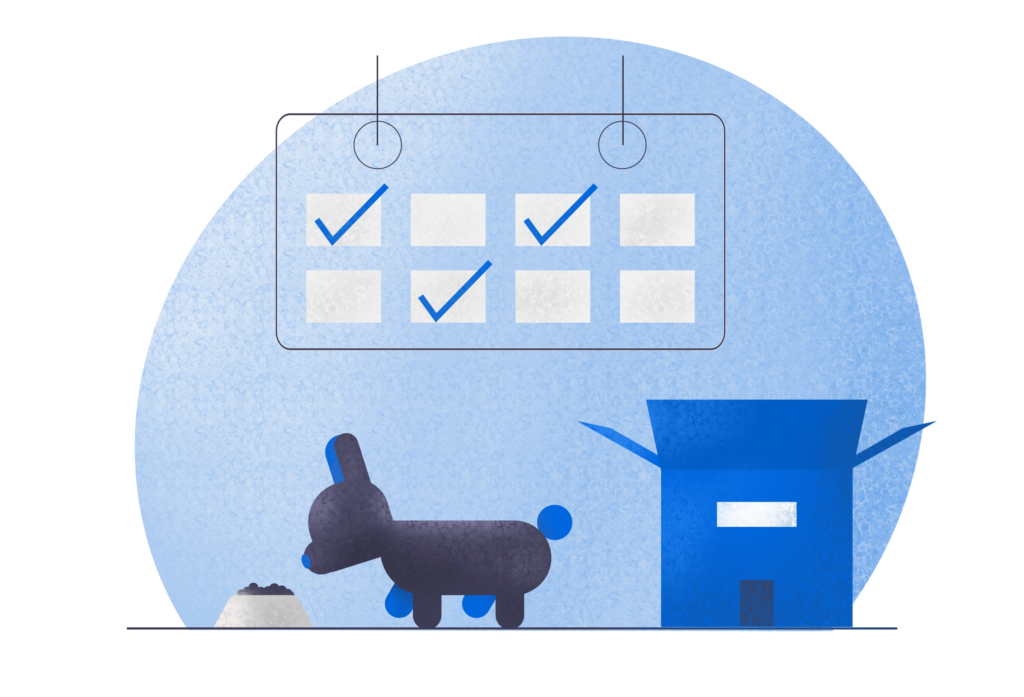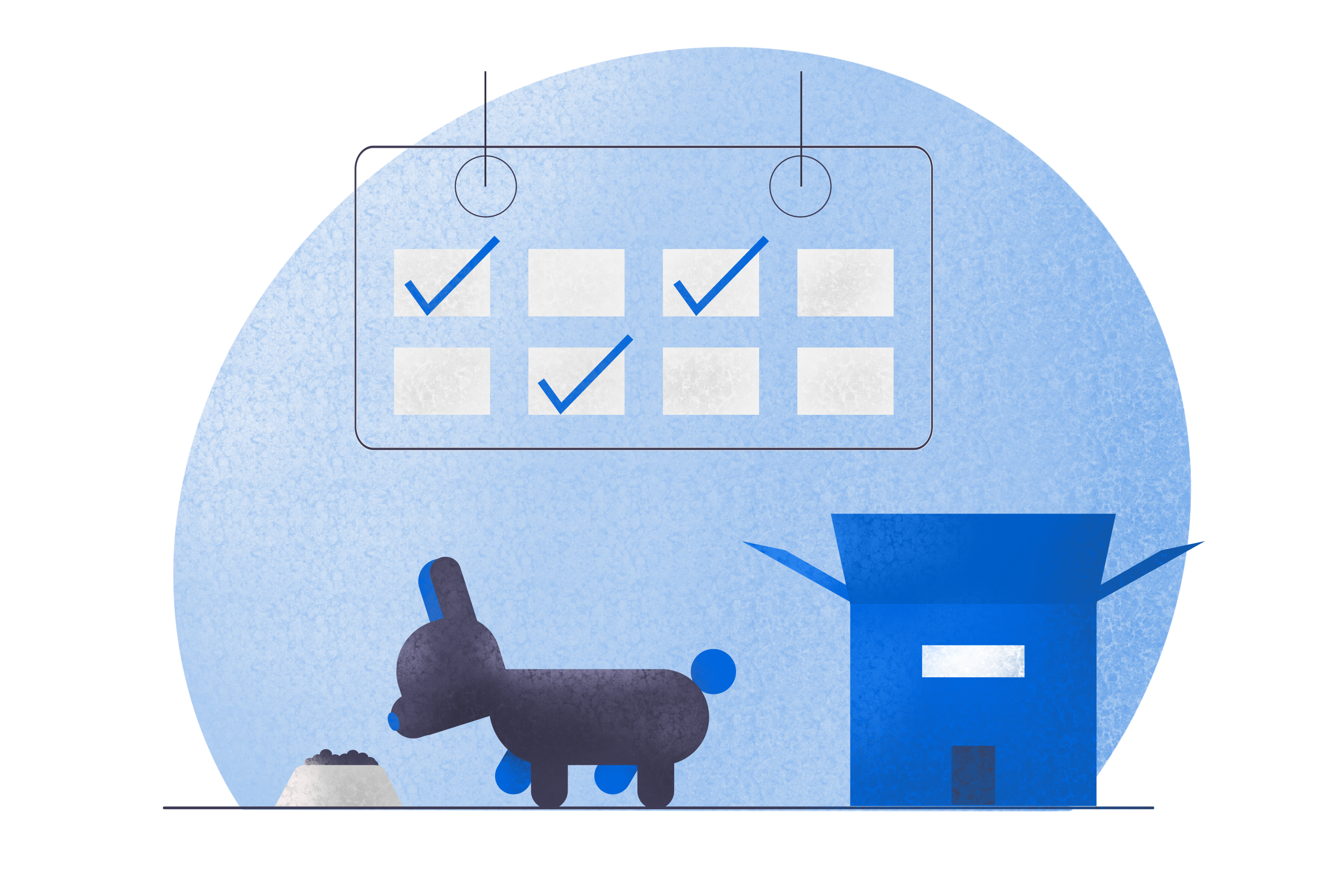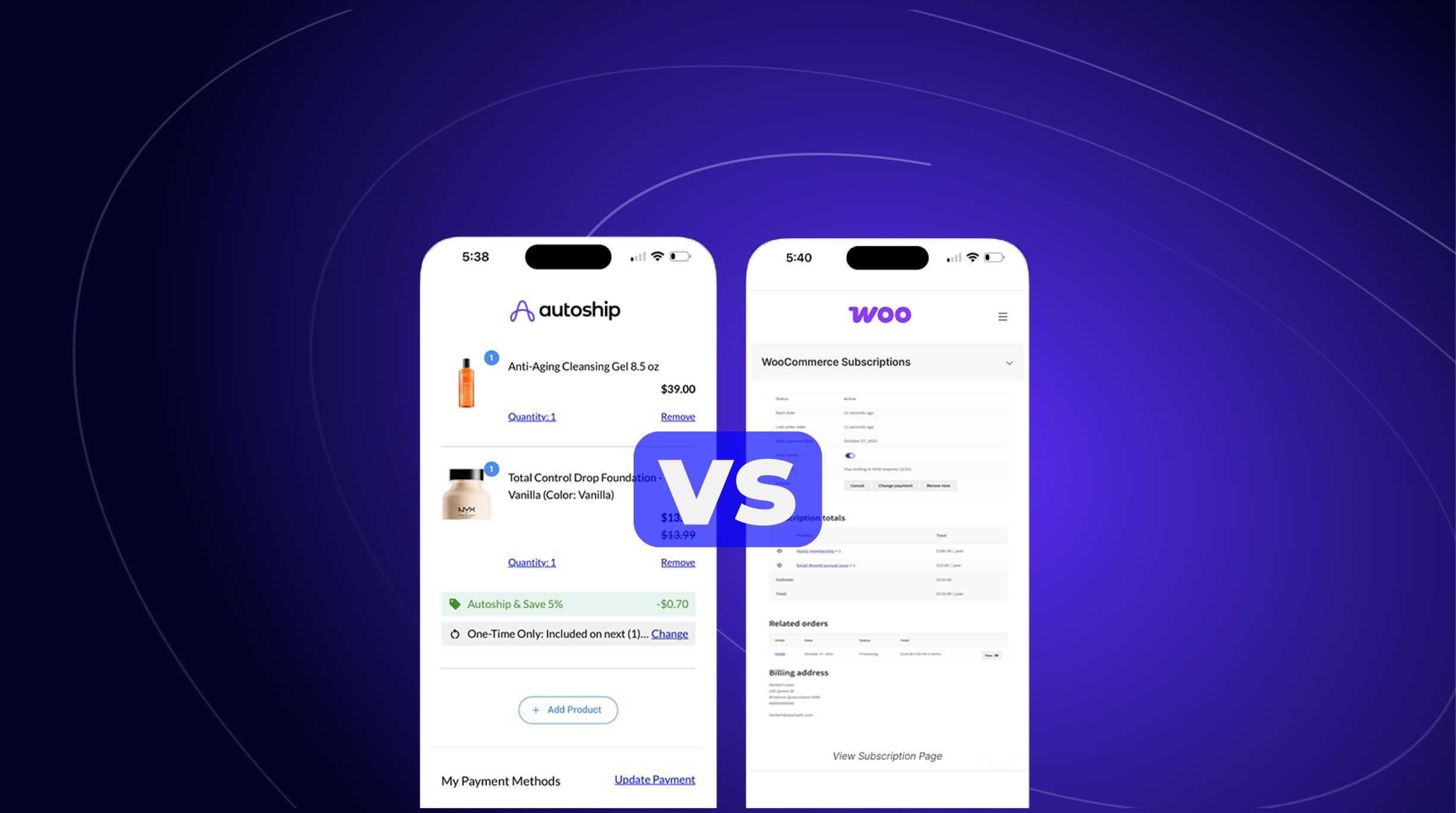Ecommerce subscriptions get a lot of mileage out of providing a bespoke experience to their customers. Dermstore, as previously mentioned, offers a first-class experience by surprising subscribers with products they may not have risked purchasing otherwise.
But while this strategy works great for Dermstore, fashion brands, and curated collectible boxes, there’s at least one place it doesn’t: dietary supplements for your pets.
That was the problem Herbsmith faced. They wanted to offer recurring, scheduled deliveries of expert-recommended products to their customers, but they didn’t want those products to come as a surprise. With regards to something as important as the nutrition and health of a cherished family pet, Herbsmith didn’t want their customers to feel as though their hands had been forced.
Unfortunately, the only alternative was to make recommendations, and then leave the customer to go digging through their site to find the products. Or so they thought.
Let’s take a closer look at how they got to have their cake and eat it, too. Within a year of adding Autoship to their websites, Herbsmith’s scheduled orders grew over 150%, and in the first 5 months of 2021 they’ve kept growing by an additional 50%, and the average time a customer stays on a scheduled order is 10 months!

About the Brands
Herbsmith is a company focused on helping pets with medical issues and unique dietary needs by providing a custom supplement plan. Their sister company, The Simple Food Project, is all about ditching low-quality pet food and going organic to improve their quality of life.
Founded, owned, and operated by the same leadership, both brands put as their top priority the health and well-being of furry companions, because if you’re eating well, shouldn’t they be too? To pursue that noble goal, both provide premium nutritional products for pet owners that really care about their cats and dogs.
The Simple Food Project requires little explanation to understand: wholesome, high-quality pet food and treats. Their product list is very small: three styles of feed for dogs, three for cats, and treats for each. With an obvious value proposition and simple ingredient lists (pun intended), customers can find the appropriate product for their pet easily and without guidance.
Herbsmith, on the other hand, initially found itself at a disadvantage. Their value proposition primarily hinged on expert advice from a professional (shoutout to Dr. Bessent, their CEO, founder, and resident veterinarian) to guide customers to the products that would most benefit their pets.
The question was, how do you offer a curated scheduled order experience, without forcing customers to accept a subscription box they couldn’t customize?
Step 1: Enabling Autoship
Both brands started with the foundational feature that they couldn’t live without—recurring shipments. Using the QPilot scheduled order engine and the Autoship plugin, Herbsmith and The Simple Food Project enabled customers to sign up for repeat deliveries of the products they were feeding to their pups and kittens on a monthly basis.
For The Simple Food Project, that was enough. Customers could find what they needed, sign up for scheduled orders, and then let the system take care of the rest. Herbsmith, however, was going to need a little more technological assistance.
Step 2: Customizing in Order to Curate
Herbsmith quickly capitalized on a feature unique to QPilot: the link builder.
This functionality allows brands to create custom links that, when clicked, add a specific item into a customer’s cart, completely set up and ready to be purchased as a scheduled order. A lot of our clients leverage this feature to make it as easy as possible for their customers to get the products they want every month (or however often they like). But Herbsmith…they went a step further.
The default functionality of the link builder only adds a single item to the cart with any given link. Left like that, the usefulness of the tool was still a bit limiting. Either customers would have to click multiple links (say, in their email) to add all the recommended products to the cart or, more likely, they would click a single link to add a single item, and miss all of the other recommendations.
So, Herbsmith also took advantage of the webhooks on the link builder to add custom functionality. In this case, that meant enabling the creation of links that added multiple items to the cart all at once.

Step 3: Curating Without Constraining
Finally, Herbsmith succeeded in creating the exact system they wanted. Here’s how it works:
- New customers arrive on their site, where they are prompted to take a brief quiz about their pets’ medical and dietary needs
- The interactive quiz jots down their responses
- Rather than have an algorithm number crunch the quiz answers, an actual person on Herbsmith’s end (i.e. Dr. Bessent) reviews those answers
- Expert recommendations are made regarding products that will benefit the customer’s pets based on their unique needs
- A custom link is created that allows for all of those products to be added to their cart with a single click
- The link is added to an email that is sent to the customer, with explanations as to why the recommendations were given
- The customer clicks the link, adds the whole group of products to the cart, and then reviews the selections before clicking “purchase”
This process has three primary advantages. First, customers get the expert advice they need to make the appropriate product selections (the original value proposition). Second, it provides customers with a path to their purchase with the fewest possible steps.
Third, it allows those customers to modify their order—either by changing the products ordered or by changing the order frequency.
The result is a bespoke experience without the heavy-handedness or buyer’s remorse that would normally come with a subscription to surprise products that can’t be returned.
How the Technology Affects the Bottom line
Let’s take a look now at how these tactics (and the system that enables them) have been influencing the sales of these brands.
Both brands connected to QPilot in January 2019. Since then, they’ve seen meteoric growth. In this year alone, both sites have increased their scheduled order count by an average of 50%.
Herbsmith currently sees a typical customer lifetime of 323 days (10 months). The Simple Food Project has an average lifetime revenue of $641.18 for repeat customers, and sees a typical customer lifetime of 297 days (nine months).
They measure customer lifetime by the average number of days a scheduled order remains active (rather than cycle counts). This provides a more accurate depiction of how long customers are active, since cycles vary in length, and don’t always line up perfectly with the start and end of the customer’s journey.
For example, a scheduled order may be active for 153 days (five months), but only have a cycle count of three if the cycle they’ve set is longer than a month. In other words, the flexibility of the system has required a slight change in reporting practices to facilitate a more correct representation of the brands’ success.
Conclusion
For products like these, which are needed on a recurring basis (and usually a monthly basis at that), scheduled order subscriptions or autoship are perfect. More importantly, the right scheduled order system allows brands to offer the customer experience they’ve always dreamed of.
That’s not just true for them, though. With the right system, and the right strategy in place, just about any ecommerce brand can provide this kind of value to their market, and see this kind of growth as a result.
Find out how powerful and customized your subscriptions can be on Autoship and reach out today.
Upgrade to Autoship
When it comes to subscriptions, you need more than just some billing software. You need a platform designed to scale with your complex business. Take a moment now to find out if Autoship Cloud can really do what you need it to do.



